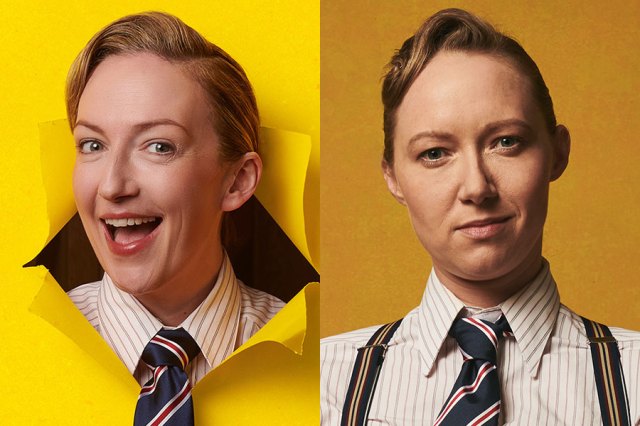Welcome Home, Captain Fox! (Donmar Warehouse)
Anthony Weigh updates Anouilh’s 1937 play, relocating it to 1950s America
Europe was in the grip of its own amnesia when Jean Anouilh wrote his play about a soldier with no memory in 1937. Regarded as the French playwright's first success, Le Voyageur Sans Bagage (The Traveller Without Luggage) stages an existential crisis. Fifteen years after the first world war, Gaston is presented with a past he neither remembers nor wants.
Anthony Weigh has transposed Anouilh's plot to the Hamptons in 1959 – a shift that elegantly enhances the question of escaping oneself. After 14 years in an East Berlin prison hospital, Rory Keenan's Gene is hurled back into (ahem) polite East Coast society. He is, he's told, Jack Fox – probably Captain Jack Fox, by now – and his well-heeled, if snooty, family welcome him home with open arms and pursed smiles. Mrs Fox (Sian Thomas) greets the son she thought dead like a letter returned to its sender.
However, Keenan's innocent is a far-cry from his former shitbag of a self. Jack Fox was a keen hunter, who bullied his dim brother (Trevor Laird) and carried on with his sister-in-law, the vituperative Valerie (Fenella Woolgar). As the Foxes try all manner of aides-memoire, it becomes increasingly obvious that Gene doesn't want to be Jack. He sits in his childhood bedroom, surrounded by his stuffed animal victims, and contemplates the scar on his shoulder that seems to confirm his identity.
As word of a long-lost soldier gets out, however, other families arrive to stake their claim. Almost everybody has lost somebody, and that makes this human goldfish gold-dust, giving Gene/Jack a shot at being somebody else.
Anouilh's play is a witty philosophical teaser about identity, and Weigh keeps us guessing about who Gene really is. Even a scar isn't proof, but the more ardently he denies being Jack, the more his stubbornness seems to confirm it. But Anouilh pushes past the usual conundrums – are we defined by our memories, our actions or our character and so on – to ponder the possibility of personal reform.
Gene, essentially, wants a new life – to throw off his past and start afresh. Weigh's canny setting extends that with ideas of privilege (the Foxes' black servants are a constant presence) and the restricted worldview of American capitalism. How much can any of us really shake off our selves? Anouilh answered in black and white, but Weigh adds shades of gray. As Valerie hammers home, "You can't escape from the whole world."
Weigh has a hoot with the snobbery of Hamptons high society, and Blanche McIntrye's production, with a sea breezy Mark Thompson design, gives it just the right comic gloss. Katherine Kingsley and Danny Webb are a blast as the social-climbing Dufort-Duponts (do not soften that hard t), who throw Jack to the Foxes to raise their own standing. "There is only so much Mah-Jong one can play," she pooh-poohs. Woolgar's on tremendous form as the arch Valerie, and Sian Thomas suggests, right at the end, the human heart beneath Mrs Fox's icy exterior. Their behaviour – so intent on keeping up appearances – serves as proof that identity is, at least in part, a performance.
However, sometimes that performance falls apart – and Weigh's version sidesteps the darker edges of personal disintegration. Keenan lends Gene a boyish insouciance and a bewilderment, and he's never anything less than charming, but with no real danger of breakdown, there's no real danger at all.
Welcome Home, Captain Fox runs at the Donmar Warehouse until 16 April.












